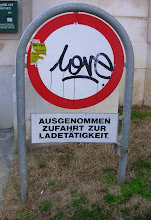Eugénie Grandet is Balzac's novel on greed and wealth, exposed both on a familial level and on a geographic level (city v. country). Monsieur Grandet hoards his money and lives a miserly life, depriving his wife and daughter of everyday comforts. Balzac's continuous writing style became a little bit irritating because it was hard to know when to stop and reflect on major events in the story and really digest what's happening. Another thing that bothered me (and deliberately so) was Eugenie and her mother's complete ignorance as to the concealed bank upstairs in their home. They two women are often referred to as religious and pastoral and this being the roots of their ignorance. Monsieur Grandet, on the other hand, travels and knows what life is like outside of the town of Saumur. He's religious by title but isn't devout like the rest of his family.
One of the points I am still breaking down is the status of Eugenie at the end of the book. She's lost the love of her life and her family, but has inherited a huge fortune. This money has become more of a blessing than a curse, because she is only seen for her money and to her it is of no consolation. She pays off Charles' debts and marries Cruchot but on the condition that he never have her physically. Her life is pious but unfulfilling. I think her final decisions show that she is a woman of strength. She wants to live a completely honest life, and if that means she must give up all relations so be it.
Furthermore, the last line of the book reads, "Neither big Nanor nor Cornoiller is sharp enough to understand the world's corruptions." Nanon ends up the happiest character in the book. Her life of being a maid is over, she is finally recognized for her attractiveness and worth and gets married, and lives off of Eugenie's fortune. She has it made, but she is also uncapable of understanding much of what goes on around her. Because of this ignorance, she has no concept of money or greed and yet she is the "richest" of them all.
